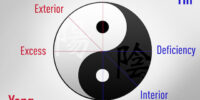Chinese Medicine For Fertility: Enhancing Reproductive Health And Support
Chinese medicine has been recognized for its holistic approach to health and wellness for centuries. In recent years, it has gained increasing popularity as a complementary therapy for fertility treatment. This article delves into the principles of Chinese medicine and its role in enhancing reproductive health and support.
One key aspect of Chinese medicine is acupuncture, which has been shown to have positive effects on fertility outcomes. By stimulating specific points on the body, acupuncture can regulate hormonal balance, improve blood flow to the reproductive organs, and reduce stress levels, all of which are crucial for optimal fertility.
In addition to acupuncture, herbal medicine is another important component of Chinese fertility treatment. Certain herbs have been found to promote hormone balance, improve egg quality, and increase sperm count and motility.
Furthermore, dietary and lifestyle recommendations are integral in Chinese medicine for fertility. By adopting a nourishing diet and implementing stress management techniques, individuals can optimize their reproductive health.
This article also explores the benefits of mind-body techniques and the significance of understanding the menstrual cycle and fertility charting. Moreover, it discusses the potential benefits of combining Chinese medicine with Western medicine for enhanced fertility outcomes.
Finally, success stories and testimonials highlight the effectiveness of Chinese medicine for fertility. Through its holistic approach, Chinese medicine offers a comprehensive and supportive approach to enhance reproductive health and support individuals on their journey towards parenthood.
Understanding the Principles of Chinese Medicine
The principles of Chinese medicine encompass a holistic approach that seeks to restore balance and harmony within the body, viewing fertility as a reflection of overall health and well-being.
Chinese medicine believes that the body is composed of interconnected systems, and imbalances in one system can affect others, including the reproductive system.
The concept of Qi, or vital energy, plays a central role in Chinese medicine, as it flows through meridians in the body, nourishing and supporting all organs and systems. When the flow of Qi is blocked or disrupted, it can lead to disharmony and health issues, including fertility problems.
Chinese medicine aims to restore the flow of Qi and balance the body’s Yin and Yang energies through various techniques such as acupuncture, herbal medicine, dietary adjustments, and lifestyle changes.
By addressing the underlying imbalances and promoting overall well-being, Chinese medicine aims to enhance reproductive health and support fertility.
The Role of Acupuncture in Fertility Treatment
This discussion will focus on the role of acupuncture in fertility treatment. Specifically, it will explore how acupuncture stimulates blood flow and qi energy, as well as regulates hormonal imbalances.
Acupuncture is believed to promote the flow of blood and qi energy throughout the body. This can help optimize reproductive health and support fertility.
Additionally, acupuncture has been suggested to have a regulatory effect on hormones. This may be beneficial for individuals experiencing hormonal imbalances that can affect fertility.
Stimulating Blood Flow and Qi Energy
By stimulating blood flow and enhancing the flow of Qi energy, Chinese medicine for fertility aims to improve reproductive health and support.
According to traditional Chinese medicine (TCM) principles, Qi is the vital energy that flows through the body, and any disruption in its flow can lead to health imbalances. In the context of fertility, TCM believes that a sufficient and balanced flow of Qi is crucial for the reproductive organs to function optimally.
Acupuncture and herbal medicine are commonly used techniques in Chinese medicine to stimulate blood flow and enhance the flow of Qi energy. Acupuncture involves the insertion of thin needles at specific points on the body, which can help to regulate the flow of Qi and blood.
Herbal medicine, on the other hand, utilizes specific herbs to nourish and invigorate the blood, promoting better circulation throughout the body.
By improving blood flow and Qi energy, Chinese medicine for fertility aims to create a favorable environment for conception and support reproductive health.
Regulating Hormonal Imbalances
Regulating hormonal imbalances is crucial for maintaining optimal reproductive function and creating a favorable environment for conception. In Chinese medicine, the focus is on promoting balance and harmony within the body to regulate hormonal levels. Traditional Chinese Medicine (TCM) practitioners believe that hormonal imbalances can lead to menstrual irregularities, ovulatory problems, and fertility issues. TCM approaches hormone regulation by identifying specific patterns of disharmony in the body and using acupuncture, herbal medicine, and dietary recommendations to restore balance. For example, an excess of Yang energy may lead to excessive heat in the body, resulting in symptoms such as irritability and hot flashes. TCM treatment would aim to cool the body and reduce the excess Yang energy. On the other hand, a deficiency of Yin energy may result in dryness and low libido, and TCM treatment would focus on nourishing Yin to bring the body back into balance.
| Hormonal Imbalance | Symptoms | TCM Treatment | ||||
|---|---|---|---|---|---|---|
| Excess Yang | Irritability, hot flashes | Cooling the body, reducing excess Yang energy | ||||
| Deficiency of Yin | Dryness, low libido | Nourishing Yin to restore balance | ———————– | ———————– | ——————————- | |
| Excess Yang | Irritability, hot flashes | Cooling the body, reducing excess Yang energy | ||||
| Deficiency of Yin | Dryness, low libido | Nourishing Yin to restore balance | ||||
| Excess Yin | Fatigue, sluggishness | Clearing excess Yin energy, promoting circulation | ||||
| Deficiency of Yang | Cold intolerance, low energy | Warming the body, tonifying Yang energy |
For individuals with symptoms of excess Yin, TCM treatment focuses on clearing the excess Yin energy and promoting circulation to restore balance. This may involve techniques such as acupuncture, herbal medicine, and dietary adjustments.
Similarly, for those experiencing deficiency of Yang, TCM aims to warm the body and tonify Yang energy. Treatment methods may include moxibustion, herbal formulas, and lifestyle recommendations to strengthen Yang energy and improve overall vitality.
It’s important to note that TCM treatment plans are personalized based on an individual’s specific symptoms and constitution. Consulting with a qualified TCM practitioner is recommended for proper diagnosis and tailored treatment.
Herbal Medicine and Its Benefits for Fertility
This discussion will focus on the benefits of herbal medicine for fertility, specifically in nourishing the reproductive organs and supporting hormonal balance.
Herbal medicine has been used for centuries in traditional medicine systems to enhance reproductive health.
It is believed that certain herbs can provide essential nutrients to the reproductive organs, promote blood flow, and regulate hormonal levels, thereby improving fertility and increasing the chances of conception.
Nourishing the Reproductive Organs
Nourishing the reproductive organs is a key aspect of Chinese medicine for enhancing reproductive health and support. Chinese medicine believes that a well-nourished reproductive system is essential for optimal fertility. It emphasizes the importance of maintaining a balance between yin and yang energies in the body to promote reproductive health.
There are several ways in which Chinese medicine nourishes the reproductive organs:
- Herbal medicine: Chinese herbs such as dong quai, goji berries, and shatavari are commonly used to nourish the reproductive organs and promote hormonal balance.
- Acupuncture: This traditional Chinese therapy involves the insertion of thin needles into specific points on the body to stimulate the flow of energy and promote reproductive health.
- Diet and nutrition: Chinese medicine emphasizes the consumption of nourishing foods such as dark leafy greens, nuts, seeds, and whole grains to support reproductive health.
By incorporating these practices into their lifestyle, individuals can enhance their reproductive health and support their fertility goals.
Supporting Hormonal Balance
Moving on from the discussion on nourishing the reproductive organs, the current subtopic focuses on supporting hormonal balance in the context of Chinese medicine for fertility.
Hormonal balance plays a crucial role in reproductive health, as it affects the menstrual cycle, ovulation, and overall fertility. Chinese medicine views hormonal imbalances as disruptions in the flow of Qi, or vital energy, within the body.
Herbal remedies, acupuncture, and dietary adjustments are commonly employed in Chinese medicine to restore hormonal balance. Herbal formulas such as Dang Gui Bu Xue Tang and Xiao Yao San are often prescribed to regulate hormones and improve fertility.
Acupuncture, on the other hand, works by stimulating specific points on the body to promote hormone regulation and enhance reproductive function. By addressing hormonal imbalances, Chinese medicine aims to optimize fertility and improve the chances of successful conception.
Dietary and Lifestyle Recommendations for Fertility
To optimize fertility, it is essential to adopt dietary and lifestyle recommendations that promote reproductive health and support. Chinese medicine emphasizes the importance of nourishing the body with a balanced diet and making positive lifestyle choices. A diet rich in nutrient-dense foods such as fruits, vegetables, whole grains, and lean proteins is recommended. It is also advisable to avoid processed foods, excessive caffeine, alcohol, and smoking, as they can negatively impact fertility. Regular exercise, stress reduction techniques such as meditation or acupuncture, and getting enough sleep are also important factors to consider. Additionally, Chinese medicine recommends maintaining a healthy body weight as excessive weight gain or loss can affect fertility. By following these dietary and lifestyle recommendations, individuals can enhance their reproductive health and increase their chances of conception.
| Dietary Recommendations | Lifestyle Recommendations | General Tips | ||||
|---|---|---|---|---|---|---|
| Eat a balanced diet | Regular exercise | Get enough sleep | ||||
| Include nutrient-dense foods | Stress reduction techniques | Maintain a healthy body weight | ||||
| Limit processed foods | Avoid smoking and excessive alcohol | Seek professional guidance | ||||
| Consume adequate protein | Practice mindfulness | Stay hydrated | ||||
| Stay hydrated | Get enough sleep | Stay hydrated | Get enough sleep | Exercise regularly |
Mind-Body Techniques for Enhancing Fertility
Mind-body techniques have been shown to have positive effects on fertility outcomes. These techniques aim to address the connection between the mind and body, recognizing the influence of psychological factors on reproductive health.
One such technique is mindfulness, which involves the practice of nonjudgmental awareness of the present moment. Mindfulness-based stress reduction (MBSR) programs have been found to reduce stress and anxiety levels in women undergoing fertility treatments, potentially improving their chances of conceiving.
Another technique is cognitive-behavioral therapy (CBT), which helps individuals identify and modify negative thought patterns and behaviors. CBT has been shown to reduce psychological distress and increase pregnancy rates in women with infertility.
Additionally, relaxation techniques such as deep breathing exercises and guided imagery have been found to decrease stress and promote relaxation, potentially enhancing fertility outcomes.
Overall, incorporating mind-body techniques into fertility treatment plans may offer a holistic approach to support reproductive health.
Understanding the Menstrual Cycle and Fertility Charting
This discussion focuses on the importance of tracking fertility signs and basal body temperature to understand the menstrual cycle and identify the fertile window.
Fertility signs such as cervical mucus, changes in cervical position, and ovulation pain can provide valuable insights into a woman’s fertility status.
Additionally, measuring basal body temperature can help pinpoint the fertile window by detecting the slight increase that occurs after ovulation.
Tracking Fertility Signs and Basal Body Temperature
Tracking fertility signs and basal body temperature involves closely monitoring physical indicators such as cervical mucus consistency, height of the cervix, and changes in basal body temperature throughout the menstrual cycle. These indicators provide valuable information about a woman’s fertility status and can help in identifying the most fertile days for conception.
• Cervical mucus consistency: Observing changes in cervical mucus can provide insights into a woman’s fertility. The consistency of cervical mucus changes throughout the menstrual cycle, becoming thin and stretchy around ovulation, which indicates increased fertility.
• Height of the cervix: The position and feel of the cervix can also provide clues about a woman’s fertility. During ovulation, the cervix rises and becomes softer, allowing sperm to enter the uterus more easily.
• Basal body temperature: Monitoring basal body temperature can help identify the timing of ovulation. A slight increase in temperature after ovulation indicates that ovulation has occurred.
By accurately tracking these fertility signs, women can better understand their menstrual cycles and optimize their chances of conception.
Identifying the Fertile Window
Identifying the fertile window is crucial for couples trying to conceive as it allows them to focus their efforts on the most optimal time for intercourse. The fertile window refers to the period of time during a woman’s menstrual cycle when she is most likely to conceive.
It typically occurs around the time of ovulation, which is when an egg is released from the ovary. Several methods can be used to identify the fertile window, including tracking changes in cervical mucus, monitoring changes in basal body temperature, and using ovulation predictor kits.
Cervical mucus becomes thin, clear, and stretchy during the fertile window, while basal body temperature rises slightly after ovulation. Ovulation predictor kits detect the surge in luteinizing hormone that triggers ovulation.
By identifying the fertile window, couples can optimize their chances of conception.
Combining Western Medicine with Chinese Medicine
Integrating Western medicine with Chinese medicine offers a comprehensive approach to enhancing reproductive health and support. Combining these two medical systems can provide a holistic approach to fertility treatment, addressing both the physical and emotional aspects of reproductive health.
Here are three ways in which Western medicine and Chinese medicine can be combined to support fertility:
-
Acupuncture: Acupuncture is a common practice in Chinese medicine that involves the insertion of thin needles into specific points on the body. It can be used alongside Western medical treatments such as in vitro fertilization (IVF) to improve the success rate of the procedure.
-
Herbal Medicine: Chinese herbal medicine has a long history of use in fertility treatment. Certain herbs and formulations can help regulate menstrual cycles, improve egg quality, and enhance overall reproductive health.
-
Lifestyle Modifications: Chinese medicine emphasizes the importance of a healthy lifestyle in promoting fertility. This includes maintaining a balanced diet, managing stress levels, and engaging in regular exercise. Integrating these lifestyle modifications with Western medical treatments can optimize reproductive health outcomes.
Success Stories and Testimonials from Chinese Medicine for Fertility
One compelling aspect of combining Western and Chinese medical approaches is the array of success stories and testimonials that showcase the potential benefits for individuals seeking fertility treatment. These stories demonstrate the positive impact that Chinese medicine can have on reproductive health and support.
For instance, a study published in the Journal of Integrative Medicine reported that women who received acupuncture alongside in vitro fertilization (IVF) had higher pregnancy rates compared to those who only underwent IVF.
Additionally, another study published in the journal Fertility and Sterility found that Chinese herbal medicine improved pregnancy rates and reduced miscarriage rates in women with infertility.
These success stories provide evidence of the effectiveness of Chinese medicine in enhancing reproductive health and offer hope to individuals struggling with fertility issues.
Frequently Asked Questions
How long does it typically take to see results from Chinese medicine for fertility?
Results from Chinese medicine for fertility can vary, but typically it may take several months to see noticeable improvements. The effectiveness of treatment depends on individual factors such as the specific fertility issue and the overall health of the person.
Are there any risks or side effects associated with acupuncture for fertility treatment?
Acupuncture for fertility treatment may have minimal risks and side effects, such as minor bruising, soreness, or bleeding at the needle insertion site. However, serious complications are rare when performed by a licensed and experienced practitioner.
Can herbal medicine be used in conjunction with Western fertility treatments like IVF?
Herbal medicine can be used alongside western fertility treatments such as IVF. Research has shown that certain herbs can improve egg quality, regulate hormones, and enhance the chances of successful implantation and pregnancy.
What specific dietary and lifestyle recommendations are recommended for enhancing fertility?
Specific dietary and lifestyle recommendations for enhancing fertility include maintaining a healthy weight, consuming a balanced diet rich in fruits, vegetables, and whole grains, avoiding excessive caffeine and alcohol, managing stress, and engaging in regular exercise.
Are there any specific mind-body techniques that are particularly effective for enhancing fertility?
Mind-body techniques such as meditation, yoga, and mindfulness have been found to be effective in enhancing fertility. These techniques promote relaxation, reduce stress, and improve overall well-being, which can contribute to increased chances of conception.








